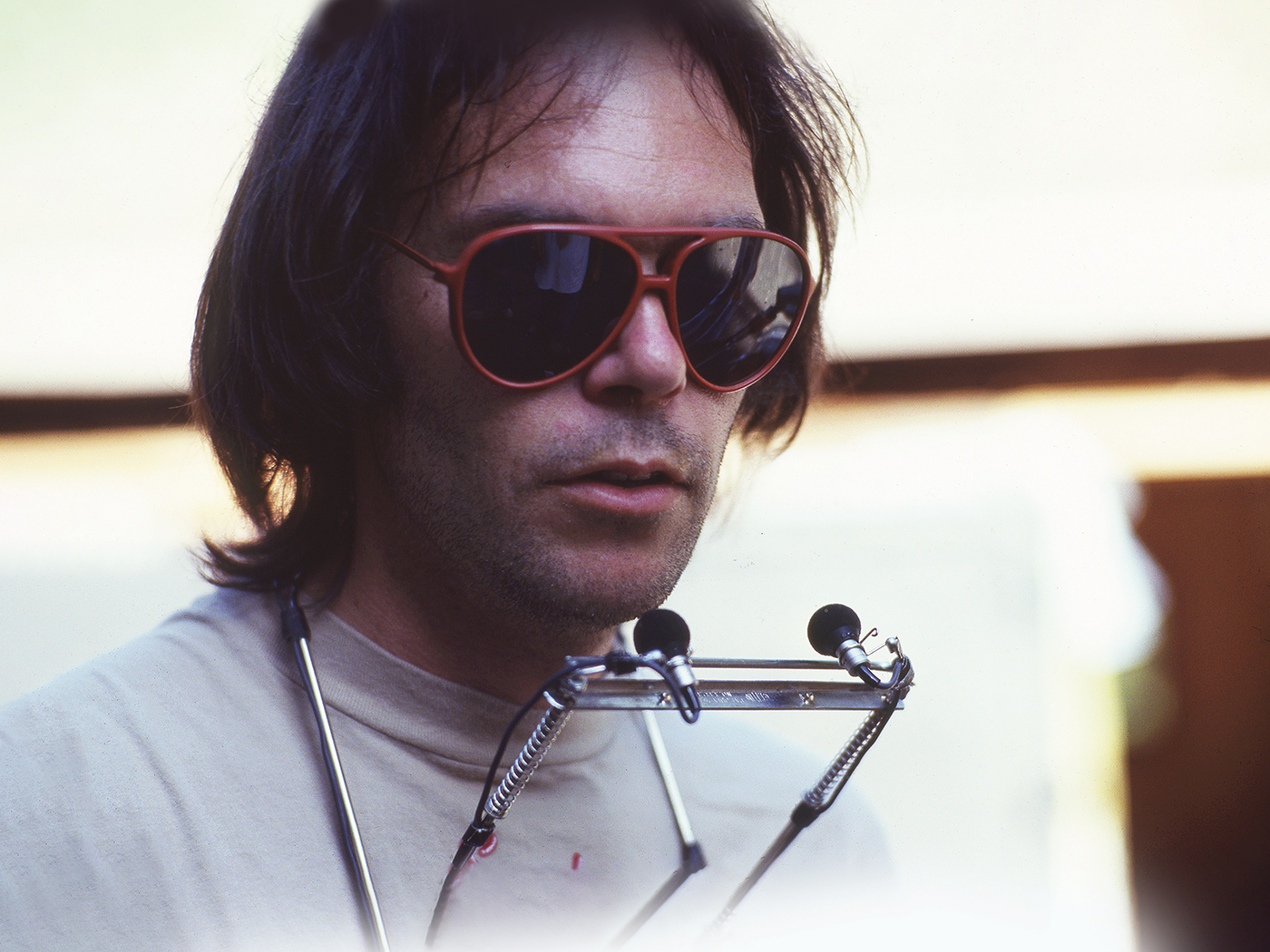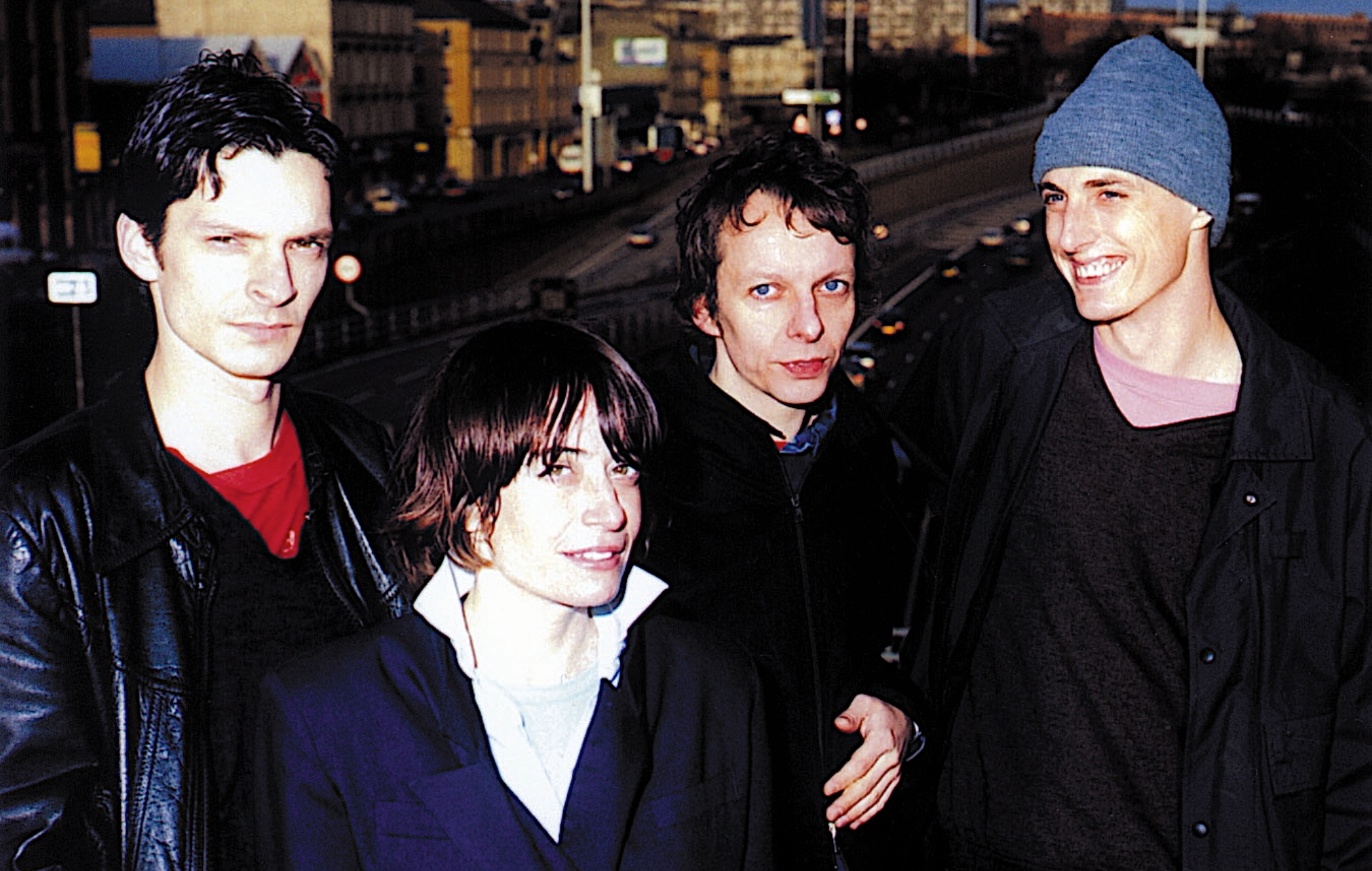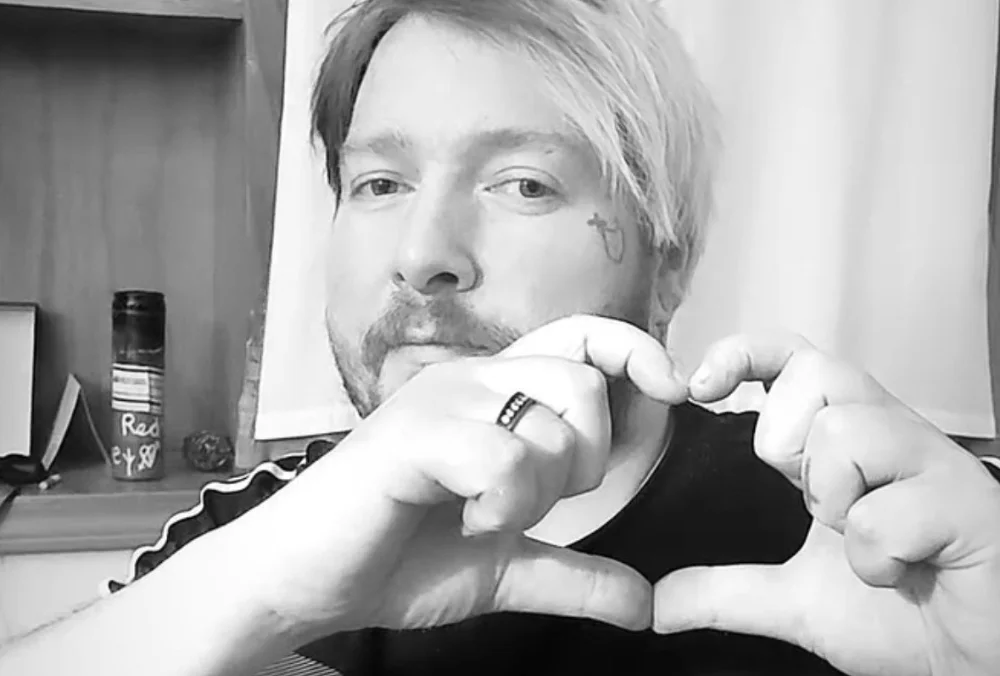
The first two discs of Archives III – here at last! – are culled from concerts at the Budokan and Hammersmith Odeon on Neil Young’s 1976 world tour with Crazy Horse that make you wish you’d been witness to at least one of them. Then you remember you were. Hammersmith, March 31, four rows from the front, half-blinded by the grit being blown off the stage by a huge wind machine during an early outing for “Like A Hurricane”.
CLICK HERE TO LISTEN TO A PREVIOUSLY UNRELEASED TRACK FROM ARCHIVES III
It comes back to you in a rush. First, Neil solo and acoustic, the setlist a fan’s dream. Crazy Horse joining him for a second set that included “Down By The River”, “Like A Hurricane”, “Southern Man”, “Cortez The Killer”, “Cinnamon Girl”, “Cowgirl In The Sand”. These songs became central to Young’s concert repertoire in the decades ahead, but these recordings are from the days before they became familiar set-pieces. Everything felt newly minted, freshly bottled lightning. “Like A Hurricane” had been played for the first time only months earlier, in December 1975, on the Rolling Zuma Revue tour. The Odeon version is everything you remember, played out in a lunar glow, Neil’s guitar emerging from the maelstrom like something blown by a solar wind, at the time unlike anything you’d heard.
These performances are among the many highlights of this vast set – 198 tracks across 17 discs, linked occasionally by Neil “raps”, usually dryly informative, plus, on the US Deluxe Edition, five Blu-Ray discs with 11 films – that covers Young’s career from 1976-1987. There isn’t a chapter of that career that hasn’t been touched in some way by drama, tragedy, fireworks of one kind or another, but Neil’s ’80s were especially turbulent and ended with him estranged from his own fans and being sued by his own label for making uncommercial records. The synth-pop of 1983’s Trans was especially ridiculed, no-one hip to the circumstances that inspired it, the emotional impact on Young of his children Zeke and Ben, both being born with a rare, non-hereditary form of cerebral palsy, Ben a non-verbal paraplegic. There was suddenly a lot of grief, resentment and anger to deal with. There was also an unfortunate public endorsement of Ronald Reagan and regrettable remarks about Aids that seemed dramatically at odds with his usual hippie utopianism.
There’s much across the anthology you’ve already heard. Most of the tracks on Discs 3, 5, 10, 11, 12, 13 and 16 are lifted from Hawks & Doves, Re-ac-tor, Rust Never Sleeps, Live Rust, Hitchhiker, Songs For Judy and The Last Waltz. The eerily fathomless “Will To Love” appears on both American Stars ’N Bars and Chrome Dreams. Of the unreleased songs on these discs, it’s not hard to see why some of them have never found a home. “Your Love” is a gussied-up blues, “If You Got Love” a blaring lurch. On something called “Hard Luck Stories”, Young seems to be indulging a fortunately short-lived ambition to sound like Freddie Mercury. “Cryin’ Eyes”, on Disc 5, recorded live with The Ducks, meanwhile, has a fantastic bar band urgency. The rough and tumble “Bright Sunny Day”, with Crazy Horse, may have been recorded in a car park, while “California Sunset”, just Neil and a banjo, sounds like it was recorded with Neil sitting on a hay bale, surrounded by domestic fowl and a quacking duck. It’s lovely. As is “My Boy”, which follows it on Disc 13, a wisp of a thing with more banjo, so slight it barely exists, but very affecting. An early version of “Lost In Space” ends with Ronnie Wood of all people wandering into the studio for an inconsequential chat. Elsewhere, “We Never Danced” is a melancholic piano ballad, sung in his highest register. “Road Of Plenty” is an early sketch of Freedom’s “Eldorado”.
Click here to read Uncut’s review of Archives Vol. 1: 1963–1972
Click here to read Uncut’s review of Archives Vol. II: 1972–1976
One day in early 1977, Neil drove out to Linda Ronstadt’s Malibu digs, with producer David Briggs and a bunch of new songs he wanted to play to Ronstadt and Nicolette Larson. They sat at a kitchen table, Briggs taping the entire session, presented on Disc 4 as “Snapshot In Time (1977)”. Neil starts with “Long May You Run”, already recorded and released in 1976 on the Stills-Young Band album of the same name, but here sung in a lower register than usual. Ronstadt and Larson pick up on it quickly, joining in on the chorus and laughing out loud when Neil gets to the line about The Beach Boys, “Caroline, No” and “getting to the surf on time”. There’s an early take on “Hold Back The Tears”. “This is the fiddle part,” he says and starts humming. “Pocahontas”, recorded at Ronstadt’s kitchen table, may be the best version of the song.
Young turns up at Reprise early that same year with some tracks he’s recorded in Florida, at Triad Studios in Fort Lauderdale, to test the reactions of label bigwigs Mo Ostin and Lenny Waronker. They think the songs need a band. Instead of throwing a tantrum and heading off on tour with a balalaika quartet to piss them off, he takes their advice. He’s soon in Crazy Mama Studios in Nashville, with a hardy troupe that includes veteran Nashville fiddle player Rufus Thibodeaux. The 12-track Disc 6 of the anthology, Oceanside Countryside, features 11 previously unreleased tracks from the sessions, which also yielded the version of “Lost In Space” that appeared on Hawks & Doves. “Field Of Opportunity” is undiluted bunkhouse country, the kind you might hear in a hundred roadhouses and honky tonks. A version of “It Might Have Been” makes you think of George Jones. “Dance Dance Dance” is a hoedown. There are unreleased versions of “Comes A Time”, “Peace Of Mind”, with multitracked vocals, a handsome take on “Sail Away”; an unreleased mix of “Pocahontas”, heavy on the tom toms. “Human Highway” is here, too, a song that changes so little from take to take he could have added bagpipes and a kazoo orchestra to the arrangement to no noticeable effect.
The Crazy Mama sessions were sidelined when Young became once again interested in Comes A Time, with Nicolette Larson as co-vocalist, backing from The Gone With The Wind Orchestra and a host of studio regulars. In August 1978, after months of dithering over test pressings and the tracklisting, Young finally released Comes A Time – originally called Give To The Wind. It was his first Top 10 hit since Harvest and a tour quickly followed. Disc 7, “Neil Young & Nicolette Larson Union Hall (1977)”, was recorded at a rehearsal before a benefit show in Nashville. It has a behind-the-scenes appeal, but a disc of the concert itself would have been a better document than this boomy tape, voice, guitar and drums dominating a tough sound mix. The disc is almost saved, however, by a Comes A Time outtake, a beautiful duet version of Hank Locklin’s classic tearjerker, “Please Help Me, I’m Falling”.
Armed with another batch of new songs, Neil played them over 10 shows in 1978 at the Boarding House in San Francisco. There are first performances on Discs 8 and 9 of “Shots”, “Hey Hey, My My”, a fantastic “Thrasher”, “Ride My Llama”, “Already One”, a Comes A Time highlight. “Human Highway” makes an inevitable appearance and there’s a stunning solo acoustic version of “Powderfinger”. There’s also a generous serving of songs by now regarded as classics. A version of “Birds” is shiveringly beautiful. As he reminds us in another brief “rap”, on the morning of the second Boarding House show, he went into the studio to cut the torrid, slightly unhinged version of “Hey Hey, My My” with Devo, complete with Booji Boy vocals, that opens Disc 9.
You can only imagine the look on David Geffen’s face when Neil played him his first album for his new label after leaving a longtime home at Reprise. Trans, with its synthesisers and Vocoders, was unlike anything Young had done, an album about “teaching robots to sing”, as he puts it in one of his “raps”. Fans and critics, unaware of the personal circumstances that had inspired the record, were aghast. There are six tracks from it included on Disc 12, which also includes tracks from Johnny’s Island (originally Island In The Sun), an album recorded in Hawaii around the same time and with the same crew as Trans, mostly music with a sunscreen gloss made by people in shorts, Wayfarers and deck shoes that makes most Yacht Rock sound like Big Black. “Island In The Sun” even has bongos on it. “Raining In Paradise” is more weather forecast than song, and “Big Pearl” evokes grass-skirted hula hula girls and coconuts. “Johnny” is a song about urban terrorism saddled with gallumphing synths.
Trans had rattled Geffen, and they were further shocked when Neil as a follow-up offered the original Old Ways, a country album the label, appalled at the idea, rejected. In response to their demands for something “more rock’n’roll”, he knocked off Everybody’s Rockin’, a 25-minute rockabilly pastiche that Geffen released with possibly gritted teeth and much hyperventilation in the accounts department. Reviews were poor, sales worse. Geffen sued Young for $3.3 million for making records that were “not commercial” and “musically uncharacteristic”. Meanwhile, Neil was having the time of his life on a tour of state fairs and rodeos with a country band he called The International Harvesters, featuring Rufus Thibodeaux and pianist Hargus “Pig” Robbins. Disc 14, “Grey Riders: 1984-1986“, features 14 live tracks from the tour, half of them previously released on 2011’s A Treasure. The disc is an appropriately barnstorming ruckus of blazing fiddles, banjo, pedal steel, Neil on fire, too. There’s a tremendous unreleased version of the bleakly sardonic “Nothing Is Perfect”, one of the songs he played with the Harvesters at Live Aid, whose initial hillbilly pieties are brutally undermined by successive verses that evoke an idyllic America ruined by corporate greed. Like Dylan’s “It’s All Good”, the scathing closing track on Together Through Life, “Nothing Is Perfect” turns a cliche into an indictment. “The Old House”, likewise unreleased, is a gorgeous lament that describes similar economic ravages, distressed communities, farm foreclosures, lives destroyed.
In February 1984, Neil and Crazy Horse fetched up at The Catalyst, a club in Santa Cruz, for a four-night stand, apparently to work up songs for a new album that was abandoned when Neil went off to make Old Ways. The eight tracks on Disc 15, “Touch The Night (Crazy Horse 1984)”, include riff-heavy blues rock versions of “Barstool Blues”, “Welfare Mothers”, and “Violent Side” and “I Got A Problem”, the latter pair prototypes that would appear in glossier form on 1986’s Landing On Water. There are three unreleased songs, “Rock”, “Your Love” and something called “So Tired” that sounds worryingly like a Black Sabbath tribute band. A more familiar Crazy Horse emerges on an 11-minute version of “Touch The Night”, another track destined for Landing On Water, its smouldering grandeur a welcome contrast to the fraught belligerence elsewhere.
As a 2021 Christmas gift to fans, Young started streaming an unreleased album on the Neil Young Archives website. The eight-track Summer Songs, the final disc of the collection, was originally recorded at his Broken Arrow Ranch in 1987. There’s a simple, heartfelt “American Dream”, preferable at least to the ghastly, overblown monstrosity that became the title track of CSNY’s regrettable 1988 reunion album. “Someday”, “Hanging On A Dream” and a re-written “Wrecking Ball” were all revisited on Freedom. “For The Love Of Man” wouldn’t resurface until 2012’s Psychedelic Pill, 25 years later. The very last track of the anthology is an official release for “The Last Of His Kind” – “the Farm Aid song” – a celebration of American working-class nobility that could easily be about Young himself.
Available only on the US Deluxe Edition, there are also 11 films on five Blu-Rays, with a total running time of 14 hours, including the 1982 feature, Human Highway, starring Dennis Hopper, Dean Stockwell and Devo – a film “made up on the spot by punks, potheads and former alcoholics”. There’s footage from the 1978 Boarding House shows, a 1982 Berlin concert and the 1984 Catalyst shows, as murky as the music. Muddy Track is a documentary about an unhappy 1987 European tour. In A Rusted Garage is from a 1986 concert in California, with a guest appearance from comedian Sam Kinison. A Treasure has mostly ropey visuals, but a ferocious version of “Grey Riders” with The International Harvesters. There are two Blu-Rays dedicated to Trans. Best of all is Across The Water, 14 songs from the 1976 Budokan shows and some hilarious clips of Neil busking in Glasgow and a side-splitting encounter with the London hippie known as Jesus famous for dancing naked at the Roundhouse and assorted festivals. “Jesus?” Neil says. “Well, I hope it goes better for you this time.”
It’s the footage of “Like A Hurricane” from Hammersmith 1976, the first time you saw him, that really sticks. Neil looking like he’d just fallen out of a Laurel Canyon treehouse, long bedraggled hair blown askew by the wind machine, turning to the camera wild-eyed, with a Spahn Ranch grin, an air about him already of someone who’d long since stopped playing by anyone’s rules but his own. And thus it continues.
When you purchase through links on our site, we may earn an affiliate commission. Here’s how it works.







